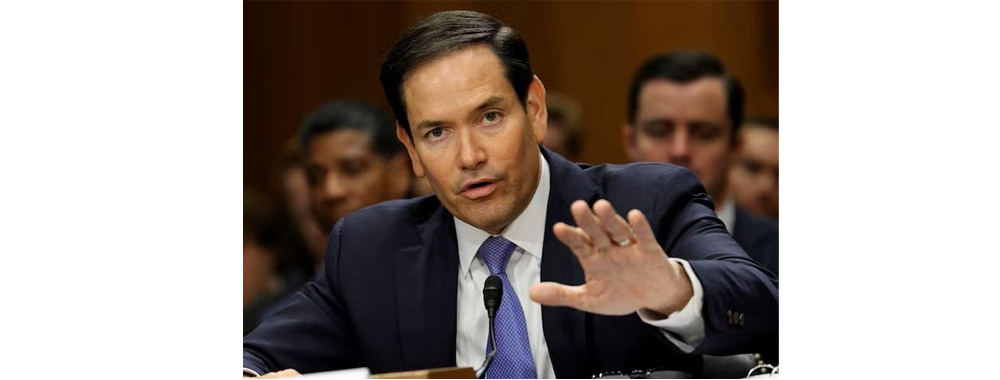USA Secretary of State Marco Rubio
by William Ysaguirre (Freelance Writer)
BELIZE CITY, Wed. June 4, 2025
The United States government continues to reiterate the trade embargo and other sanctions against Cuba, which were imposed in 1959 after the Fidel Castro led revolution liberated the Cuban people from Fulgencio Batista’s corrupt dictatorship that was connected to organized crime organizations. The latest manifestation of this policy is U.S. visa restrictions for nameless Central American government officials, and their families, who are involved with the Cuban medical brigades, by which the Cuban government has reached out to give a helping hand to the less fortunate in the region, and around the world. In the past 10 years Cuban doctors have been on the frontline fighting cholera in Haiti and Ebola in West Africa.
Over 100 Belizean doctors have been trained on scholarships at the Escuela Latino Americana de Medicina (ELAM) in Cuba, since the Cuban government first began offering scholarships to Belizean students in 1982, including to the twin brothers, Drs. Kevin and Kenneth Guerra (RIP) who gave their lives in service to Belizeans’ health care during the COVID-19 pandemic. In 2020, the Cuban medical brigade numbered 60 doctors and nurses who played a vital role in containing the scourge of the pandemic.
Belizean medical authorities were therefore nonplussed by the U.S. Secretary of State Marco Rubio’s statement on Tuesday against anonymous Central American officials for what he referred to as “their nexus to the Cuban regime’s forced labor scheme.”
Rubio’s preposterous statement continued: “The officials are responsible for Cuban medical mission programs that include elements of forced labor and the exploitation of Cuban workers. These steps promote accountability for those who support and perpetuate these exploitative practices. The Cuban labor export program abuses the participants, enriches the corrupt Cuban regime, and deprives everyday Cubans of essential medical care that they desperately need in their homeland.
“Our goal is to support the Cuban people in their pursuit of freedom and dignity, all while promoting accountability for those who contribute to a forced labor scheme. By pursuing these visa restrictions, the U.S. is sending a clear message about our commitment to promoting human rights and respect for labor rights worldwide. We encourage other nations to join us in this effort”, Rubio’s statement concluded.
It is incumbent upon the Belize Ministry of Health and Wellness to provide housing and transportation for the Cuban doctors and nurses working in Belize, and their salaries are paid to their personal accounts. Nonetheless, U.S. authorities see the Cuban health care brigades as “exploitative” and purportedly generating major export earnings of hard currency for an island suffering the economic impact of the 65-year-old U.S. embargo.
The Cuban health workers are paid directly, Minister of Foreign Affairs Hon. Francis Fonseca explained, when the question was put to him. “We’ve had very constructive dialogue with the U.S. embassy here in Belize … and through our embassy in Washington, DC. … I think they have a very good understanding of the program we have with … the medical brigade program we have with Cuba. So, we’re not concerned at this point. … we continue to … provide whatever information they want regarding the program. I think it is a very good program … we ensure that the Cuban doctors are paid directly. So, there is no question of any money is being given to the Cuban government. It’s very clear what that program is, and we believe that the US government understands that.”
Rubio was born in Miami, Florida in 1971, the son of Cuban immigrants who fled the hardships imposed by the U.S. embargo to seek a better life in the U.S. Ever since he became a U.S. senator in 2011 during President Barack Obama’s administration, he has long been against normalizing U.S.-Cuba relations, which have seesawed between liberalist policies under Democrat presidents Obama and Biden, and the more hard-line Republican stance under Trump in his first and second terms.

